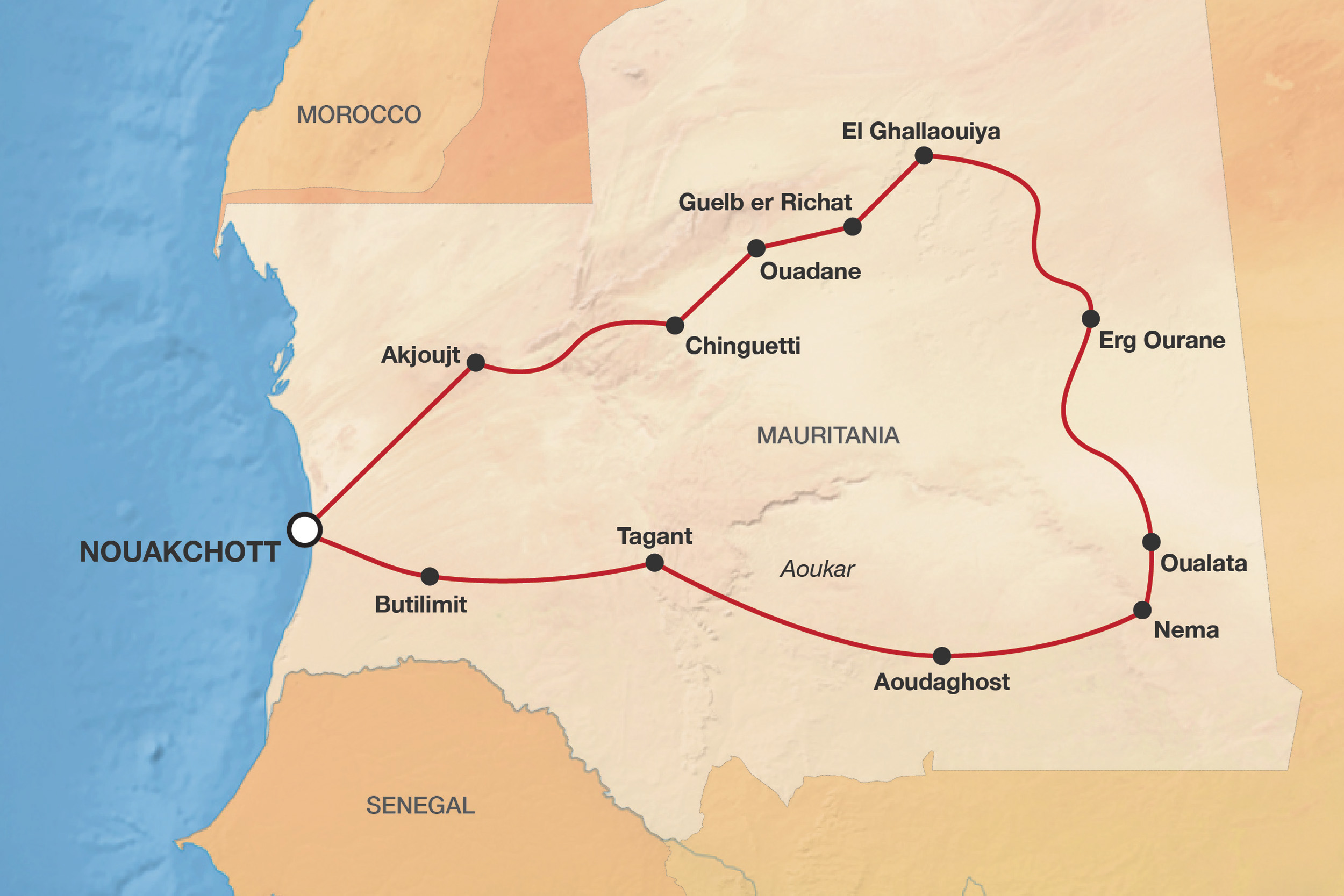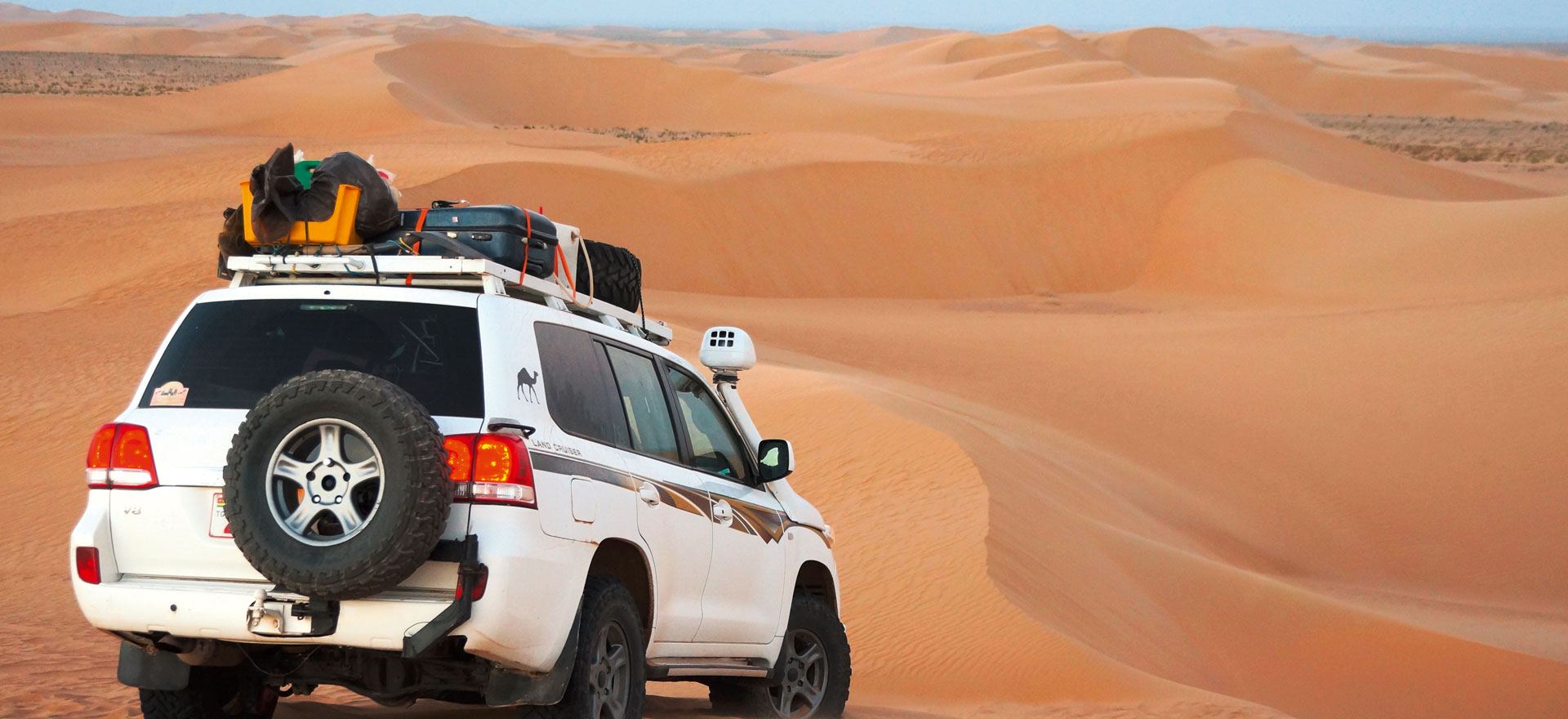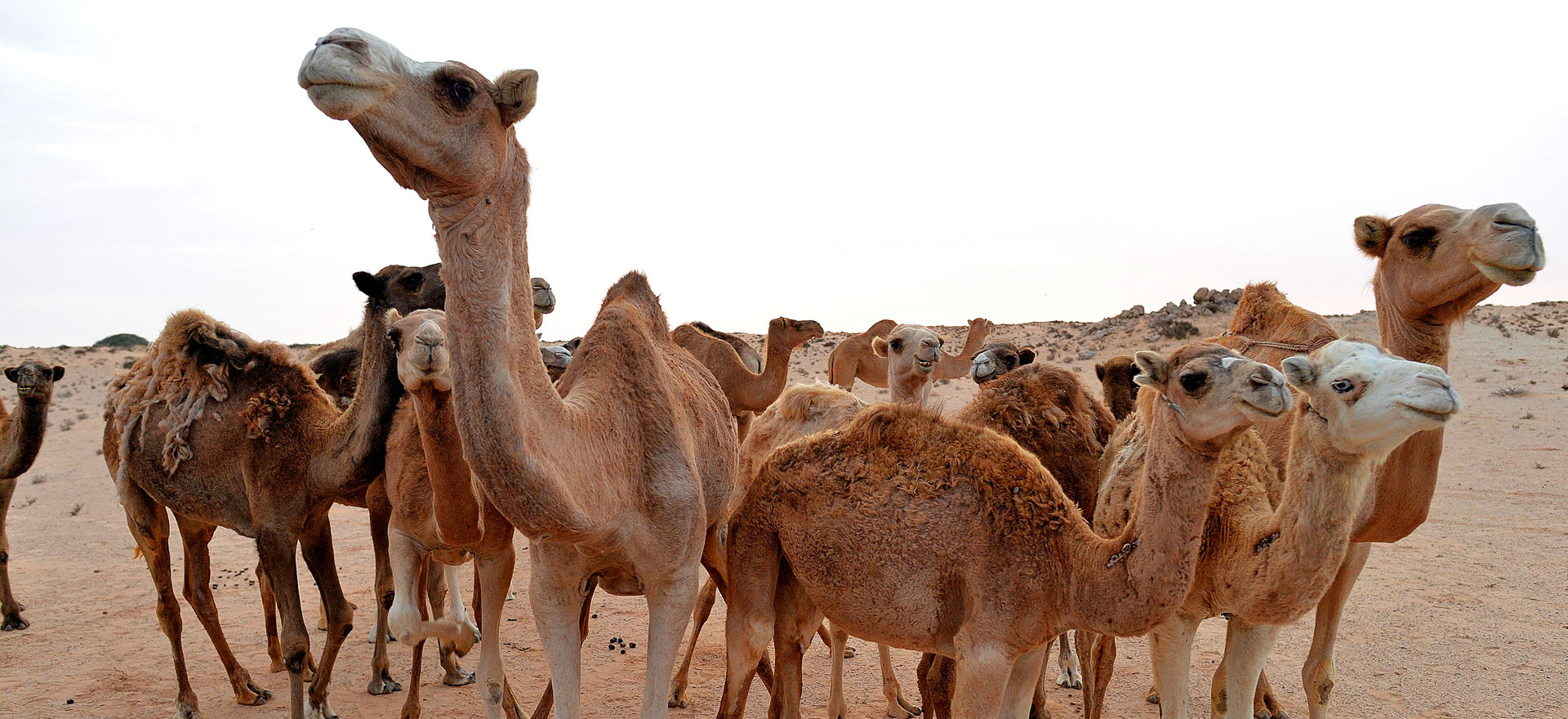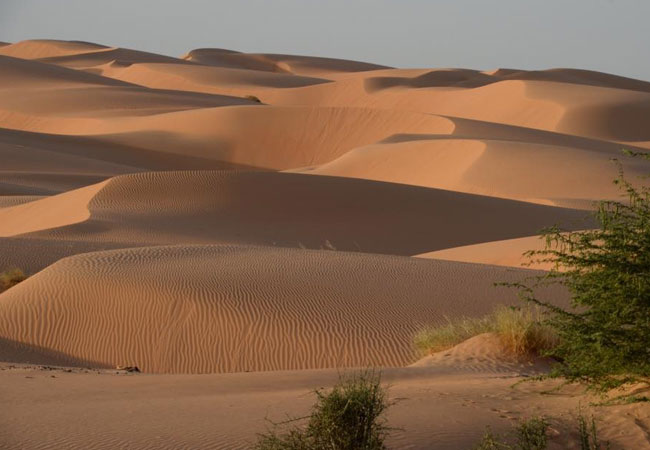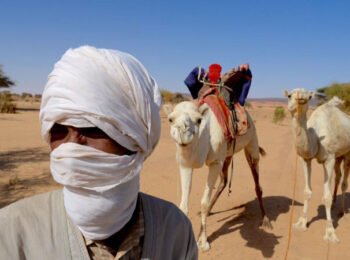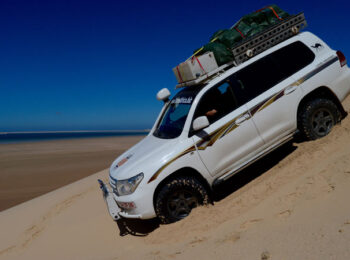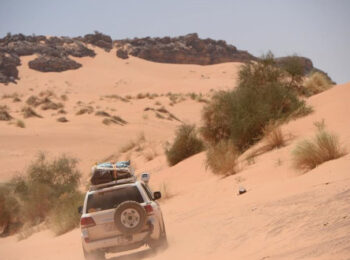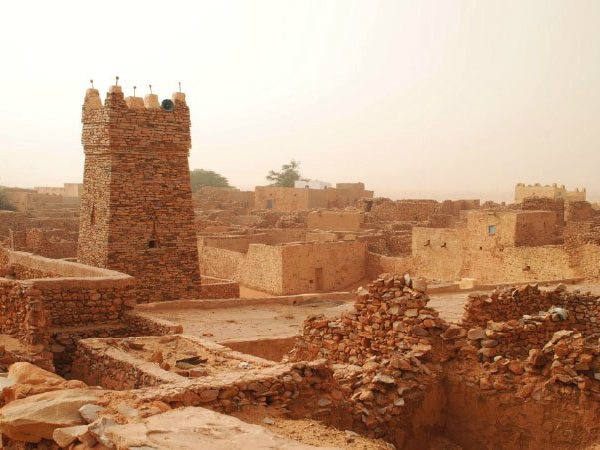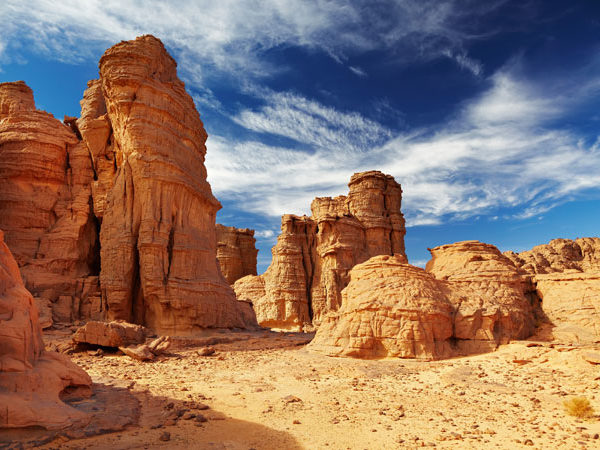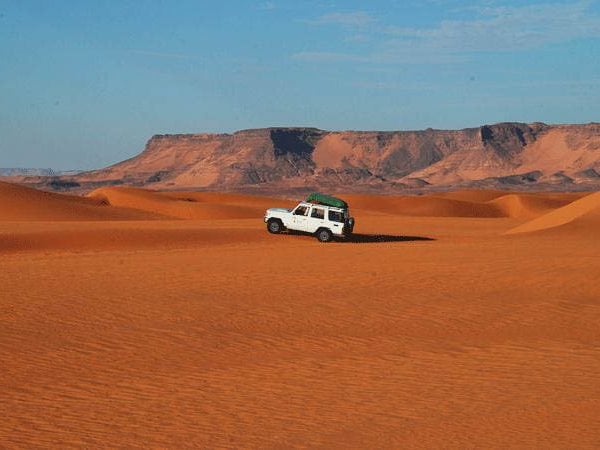Day 2 - Akjoujt
Spend the morning in Nouakchott, where we visit the National Museum for an insight into some of the sites and cultures we are about to see. From here drive north, past fields of dunes, to the town of Akjoujt. Overnight Hotel du Sahara or similar. (BLD)
Day 3 - Desert crossing – Chinguetti
Head to Chinguetti, one of Islam’s holiest cities and a real gem of Mauritania. With its collection of historic buildings this is one of the Sahara’s most interesting towns, with a sense of history that is almost tangible. To get here we drive through a remote part of the desert, where we hope to encounter local nomads and see the traces of prehistoric man such as ancient pottery. Overnight local guesthouse. (BLD)
Day 6 - Guelb er Richat
Drive to the Guelb er Richat, an interesting crater like structure also known as the ‘eye of the Sahara’ and 40km wide. Overnight camping. (BLD)
Day 7 - Trig Chauail – El Ghallaouiya
Continue to the canyon of Trig Chauail. This site is rich in rock art, with hundreds of different examples displaying wildlife, hunters and chariots. We then head to the abandoned fort of Al Ghallauoiya, built by the French camel corps, where we camp for the night. Overnight camping. (BLD)
Days 8-10 - Erg Ouarane
We enter the immense sand sea of Erg Ouarane, eight hundred kilometres of sand dunes and one of the least known parts of the Sahara. Navigating by GPS, we forge a way through the sands, stopping to meet any nomads that we may encounter on the way. This is a spectacular but tough journey, and the thrill of it is very much in the knowing that very few have trodden this path before. Overnight camping. (BLD)
Days 11-12 - Aoukar - Oulata
Day 13 - Oualata - Nema
A full day dedicated to exploring the small town of Oualata, a UNESCO World Heritage Site. The town is known for its beautifully painted adobe houses, which merge the Berber art forms with those of sub-Saharan Africa, and also houses some ancient manuscripts in a small museum. Continue to Nema for the night. Overnight local guesthouse. (BLD)
Days 14-16 - Aoudaghost
Drive south to the remains of Aoudaghost, believed to be the northernmost town of the ancient empire of Ghana, dating back to the 6th century. Our journey takes us through dunes, scattered acacia forests and past nomadic encampments. We’ll also discover the remains of a barely known site, Togba. At Aoudaghost we explore the site with its ancient clay granaries tucked away in caves. Overnight camping. (BLD)
Days 17-19 - Aoukar – Tagant
Day 20 - Butilimit
A long drive from southern Mauritania towards the capital Nouakchott. We stop on the way at a local market and arrive in Butilimit in the evening. Overnight Hotel Maman or similar. (BLD)
Day 21 - Nouakchott
Please note that we sell this trip in conjunction with our local partner and therefore you should expect people of different nationalities and a maximum group size of 16 on this tour.
What's included?
What's not included?
Visas
All travellers will require a visa to enter Mauritania. Instead of obtaining a visa on arrival, visitors are required to have an e-visa from the following website:
https://anrpts.gov.mr/visa/requestvisa
Your passport must be valid for six months after your date of entry into Mauritania. When your visa request is approved you will need to print confirmation of this, travel with it, and pay €55 on arrival to have the visa stamped into your passport. This amount must be paid in cash and so we recommend you bring smaller notes, so you are able give the exact amount requested.
Your passport must be valid for six months after your date of entry into Mauritania.
Visa regulations can change however and so we recommend that you contact your nearest embassy for the most up to date information.
Health and vaccinations
We are not medically qualified and so we recommend that you speak to your doctor or nearest health professional for advice concerning recommended vaccinations. For more advice on vaccinations, you can also visit https://travelhealthpro.org.uk/countries.
If you have any physical limitations that might impact your ability to participate in the planned tour activities, it’s essential that you make us aware as soon as possible so that we can discuss this with you.
Insurance
It is a condition of joining our tours that you have suitable travel insurance in place, and we cannot accept travellers without insurance. All policies differ in terms of what they will cover, but as a minimum you need medical and health cover which will cover you for the whole time that you are away. Most policies will also include cancellation cover, which will cover you if an unforeseen circumstance obliges you to cancel your trip. We recommend that you obtain your insurance as soon as you book your trip.
Please note that government travel warnings often affect the validity of your travel insurance, and you should check this with your insurance company.
Money
The local currency in Mauritania is the ougiya, which is impossible to obtain in Europe. It is best to bring Euros for exchange purposes.
You will find it difficult to change money outside of Nouakchott and so we recommend that you change money at the hotel upon arrival.
Local conditions
When travelling to some of the destinations we offer you need to bear in mind that things won’t always work here as we’re used to them working at home. Travelling in underdeveloped and untouristed destinations requires both patience and a sense of humour. There may be problems with infrastructure, attitudes may be different, and maintenance may not be as high a standard as we would always like, but this is very much part and parcel of travelling in such a place. We aim to resolve any issues as quickly as possible, and thank you for your patience.
Travel advice
We keep a very close eye on the travel advice issued by the UK Foreign and Commonwealth Office so that we can keep you up to date with any warnings. At the time of writing the FCO advises against travel some parts of Mauritania that we visit.
We work very closely with our local team and are fully confident that we can operate tours safely in Mauritania. Should you have any concerns over safety please do not hesitate to contact us and we can address your concerns.
This relates to advice from the British government – other nationalities need to check the stance of their own governments.
Please note that the information contained above is highly susceptible to change, and while we endeavour to keep up to date we recommend that you use this as a guide only. Should you have any questions, please don’t hesitate to contact us.
